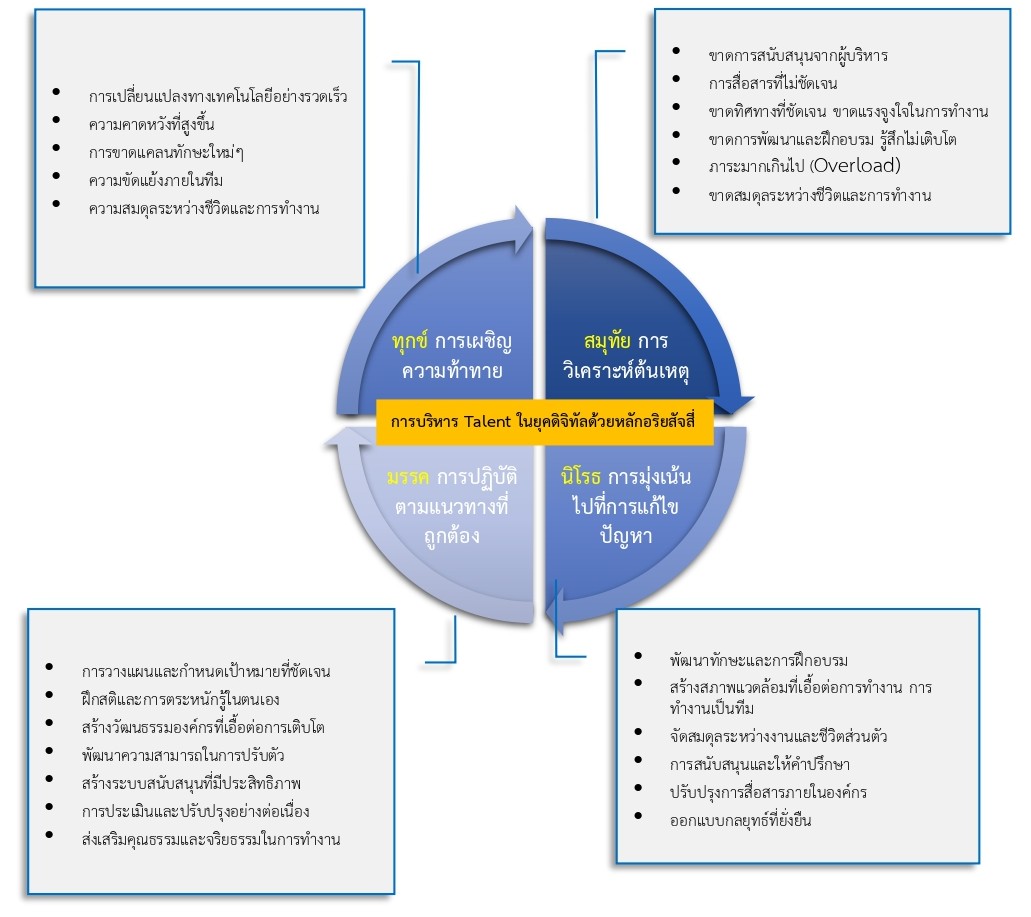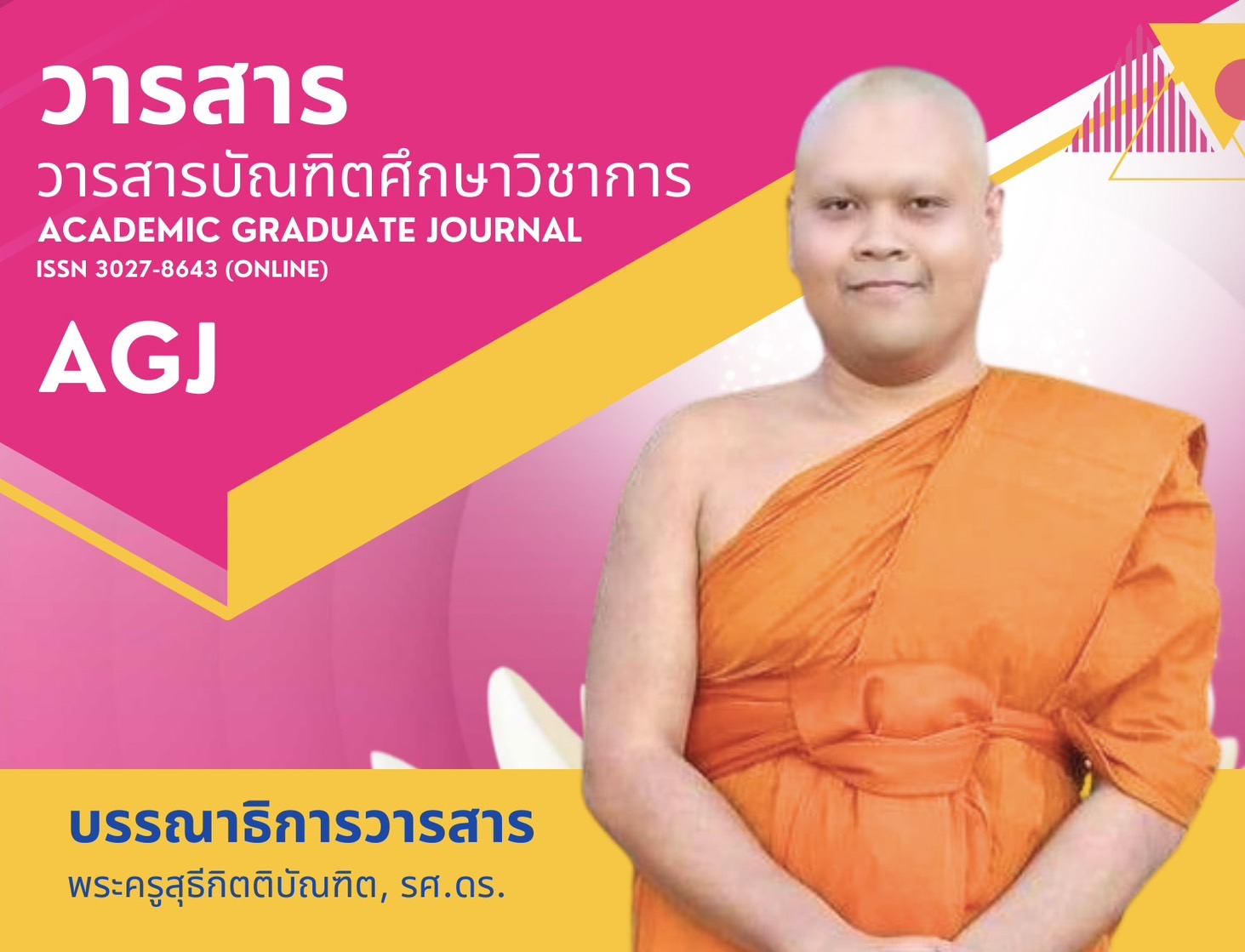THE FOUR NOBLE TRUTHS: THE POWER OF DHAMMA FOR TALENT MANAGEMENT AND DEVELOPMENT IN THE DIGITAL AGE
Keywords:
The Four Noble Truths, Talent Management, Digital AgeAbstract
This article aims to study the application of the “Four Noble Truths” – Dukkha (suffering), Samudaya (the cause of suffering), Nirodha (the cessation of suffering), and Magga (the path to cessation) – in personnel management, particularly for “Talent” groups in the digital age, marked by rapid challenges and changes. Applying these principles provides a new approach that enhances talent management efficiency, fosters organizational balance, and promotes team potential and success in a technology-driven environment. This article analyzes possible case studies and discusses expected outcomes. The application of these principles not only aids in efficient management but also strengthens understanding and relationships within teams. The article presents methods and the benefits of integrating these principles into personnel management, aiming for success in the digital age.
References
ธนกฤต ปั้นวิชัย. (2556). การบริหารจัดการที่พึงประสงค์ของวิทยาลัยสงฆ์ตามหลักอิทธิบาท 4 (วิทยานิพนธ์พุทธศาสตรมหาบัณฑิต สาขาวิชาการบริหารการศึกษา). พระนครศรีอยุธยา: มหาวิทยาลัยจุฬาลงกรณราชวิทยาลัย.
ประภัสสร วรรณสถิตย์. (2550). การบริหารจัดการคนเก่ง. กรุงเทพฯ: บริษัท ส.เอเซียเพรส (1989) จำกัด.
พรรัตน์ แสดงหาญ. (2553). คนเก่งรักษ์องค์กร องค์กรรักษ์คนเก่ง (Talent Management). Human Resource Focus. สืบค้น 15 กรกฎาคม 2567, http://202.183.190.2/FTPiWebAdmin/knw_pworld/image_content/84/80-84.pdf.
พระธรรมปิฎก (ประยุทธ์ ปยุตฺโต). (2546). พุทธธรรม: ฉบับปรับปรุงและขยายความ (พิมพ์ครั้งที่11). กรุงเทพฯ: โรงพิมพ์มหาจุฬาลงกรณราชวิทยาลัย.
วิชัย วงษ์ใหญ่. (2554). “การบริหารคนเก่ง”. ใน สารานุกรมวิชาชีพครู เฉลิมพระเกียรติ พระบาทสมเด็จพระเจ้าอยู่หัว เนื่องในโอกาสพระราชพิธีมหามงคลเฉลิมพระชนมพรรษา 7 รอบ 5 ธันวาคม 2554. กรุงเทพฯ: สำนักงานเลขาธิการคุรุสภา.
อีริคสัน ทามารา เจ และลินดา เกรทตัน. (2555). การบริหารจัดการคนเก่ง (Harvard Business Review on Talent Management) (ณัฐยา สินตระการผล และวีรวุธ มาฆะศิรานนท์, ผู้แปล). กรุงเทพฯ: เอ็กซเปอร์เน็ท.







